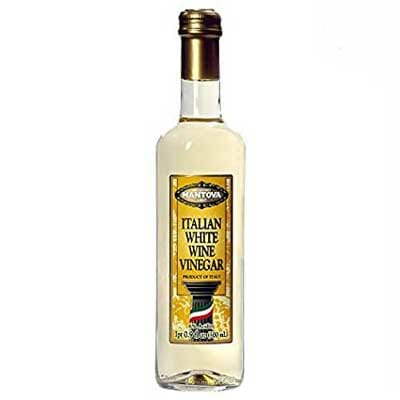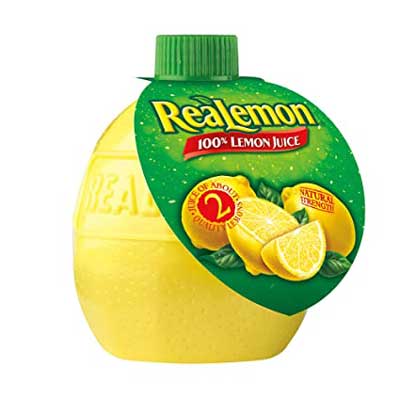Have you ever been making a scrumptious dish, but it tasted like something is missing, then all you did was add a bit of red wine vinegar (made by fermenting red wine), and just like that, the flavoring was complete.
But, what if you had no red wine vinegar, what could you have used that would have enhanced the taste of your meal just as smoothly as the red wine vinegar did?
Well, there are several other products on the market that can add that extra punch to your dish.
These options included white and rice wine and balsamic vinegar, champagne vinegar, sherry vinegar, apple cider vinegar, and more.
Many persons not only use red wine vinegar because of its interesting flavor, but they also appreciate its many potential medical benefits.
Many of these options possess those health benefits and are likewise quite flavorsome, affordable, and typically available at any local grocery store.
So, in this article, we will help you choose that perfect red wine vinegar substitute for your sauces, dressings, glazes, and more.
1) White Wine Vinegar

White wine vinegar (not to be confused with white vinegar) is produced from fermented white wine.
It gives off a tangy taste; however, it is not as zingy as red wine vinegar.
But white wine vinegar is probably the closest you will get to a red wine vinegar taste and it is also the easiest to incorporate seamlessly into recipes without messing up the flavor profile or color.
Additionally, this vinegar would be available at the majority of local grocery stores.
White Wine Vinegar Similarity to Red Wine Vinegar
- Both kinds of vinegar have nearly the same acidity level.
- Both kinds of vinegar have an almost equal consistency and density.
- They can be incorporated into most recipes in equal parts (1:1 ratio). For example, if the original recipe calls for 2tbsps of red wine vinegar, you will use 2 tbsps of white wine vinegar.
White wine vinegar can also complement healthy eating habits and is often dubbed as the best substitute for red wine vinegar, though the flavor is slightly less intense.
This vinegar usually serves well in salad vinaigrette, brining, béarnaise sauce, and braising chicken. This vinegar can be used with other sweeteners to enhance its taste.
Pros
- typically affordably
- available in almost all grocery stores
- similarly acidity to red wine vinegar
Cons
- consuming too much can lead to digestive irritation
Needless to say that this is our top choice for a red wine vinegar substitute because of its close relationship to the product.
Its similar formulation and potency put it in the number one spot as the go-to option for food makers everywhere.
Although it has a somewhat milder flavor, Plus it can afford similar health benefits to those derived from using red wine vinegar.
2) Sherry Vinegar

Sherry vinegar is a type of wine vinegar with a flavor profile that is much softer than that of red wine vinegar.
Spain is the primary importer of sherry vinegar, which is formulated from sherry wine.
Typically, to get a good sherry vinegar, the wine must be aged for no less than six months.
Also, when using sherry vinegar as a red wine vinegar substitute, experts recommend decreasing the amount of any added sweeteners since sherry vinegar makes your food have a much sweeter flavor than the original recipe would have anticipated.
The Similarities
- Both kinds of vinegar have an almost equal consistency and density.
- They can be incorporated into most recipes in equal parts (1:1 ratio). For example, if the recipe calls for 2tbsps of red wine vinegar, you will use 2 tbsps of sherry vinegar.
- Sherry vinegar also has a wide array of potential health benefits.
Sherry vinegar is ideal for your marinade or salad dressing and goes perfectly with a delicious chicken or beef meal.
As a sweet substitute for red wine vinegar, it adds a bit more sweetness to your food than red wine vinegar and gives life to roasted vegetables, soups, and vinaigrettes.
It is a great substitute for sweeter and richer dishes, such as stews and sauces for red meats.
Pros
- very tasty
- similarly acidity to red wine vinegar
Cons
- typically costly
- can be hard to find in your local grocery store
Because sherry vinegar is naturally sweet, it allows you to reduce the need for added sugars in certain recipes while doing an excellent job at improving the taste of your dish.
In addition, there are numerous health benefits to enjoy from using this substitute.
In fact, studies suggest that consuming small amounts of sherry vinegar regularly could lower blood sugar levels and improve good cholesterol levels.
3) Balsamic Vinegar

Balsamic vinegar is made from unfermented Trebbiano and Lambrusco grape juice and is of a very dark brown color.
It has a complex flavor that is described as bold, strong, and peculiar.
This vinegar has grown intensely in popularity as more people are appreciating its flavor and multiple potential medicinal benefits, including weight loss and lowering cholesterol.
It is also often used in salad dressings and marinades and is loved by many as an ideal addition to their diet to improve heart health as a result of its low-fat component.
To experience real, strong, and authentic balsamic vinegar, you must purchase the one that has been aged in barrels for months or even years.
Additionally, balsamic vinegar is a classic Italian derivative and has somewhat of a fruity, sweet taste with mild acidity.
The Similarities
- Both types of vinegar have the signature acetic acid tang.
- Balsamic vinegar also has a wide array of potential wellness benefits.
Balsamic makes a good substitute for red wine vinegar as it is much easier to be found.
This substitute works perfectly for marinating meat and especially with salad dressings and other recipes that include meat stews or even a fruit salad.
High-quality balsamic vinegar will contain antioxidants that help to protect from oxidative damage.
Pros
- Has a thick and rich consistency
- Has many medicinal benefits
- Can be substituted at a 1:1 ratio
- Easily sourced
Cons
- Can be quite expensive
Balsamic vinegar’s very aromatic with a sweet flavor has put it ahead of the rest as the ideal substitute for red wine vinegar in your favorite salad dressing.
However, it is quite flexible and can be added to your stews, marinades, casseroles, and even pizzas to give them a fruity and distinct taste.
4) Rice Vinegar

Rice vinegar, which is also known as rice wine vinegar is made from fermented rice.
Though it has a mildly sweeter taste and much less acidity than red wine vinegar, it still makes for a great substitute, particularly in Asian dishes.
You just need to add a bit more than the recipe calls for.
Furthermore, its fermentation process is quite interesting, which makes it ideal for pickling vegetables.
Similarity Between Rice Vinegar and Red Wine Vinegar
- Rice wine vinegar also has a wide array of potential wellness benefits similar to those of red wine vinegar.
- Both be incorporated into most recipes in equal parts (1:1 ratio); however, you can add more rice vinegar for a more desired flavor.
Pros
- Smooth, pleasant aftertaste
- Complements other flavors well
- Several potential health advantages, including weight loss
- Ideal for a fat-free diet
- Very versatile
Cons
- Has somewhat of a weakened flavor
Rice wine vinegar is the go-to product for most Asian recipes because of its mild flavor which allows it to blend smoothly into any dish.
Additionally, it has a slightly sweet flavor, making it perfect for pickled vegetables, sushi rice, salad dressings, and more.
5) Lemon Juice

Not only can you find lemon juice in just about any grocery store, but it is also quite flavorsome, with the right acidity to substitute red wine vinegar.
Also, it can contribute to maintaining and improving one’s health status by aiding weight loss.
This citrus juice can be incorporated in many meals, such as desserts, beverages, and as a dressing or glaze for meat and fish.
As a vinegar substitute, it may somewhat mimic the flavoring of the acetic acid that is found in red wine vinegar.
However, it may not add the same rich and fruity flavor as red wine vinegar would.
The Similarity
- Adds a similar sharpness to your dishes as red wine vinegar would.
Pros
- very affordable
- available at every grocery store
- enhances a fruitier flavor
- high in Vitamin C
- great red wine vinegar substitute for health-conscious eaters
Cons
- not as potent as red wine vinegar
If you are making a fatty meal, the acidity that is associated with the lemon juice is ideal for reducing greasiness and heaviness to deliver a cleaner and fresher flavoring to your foods.
Lemon juice can also help with speeding up the tenderizing process for meats and other foods, such as ceviche.
6) Apple Cider Vinegar

Apple cider vinegar is a type of vinegar made from fermented apples and yeast.
The yeast helps to break down and transform the sugar within the apples into alcohol.
Apple cider vinegar makes a great substitute for red wine vinegar, especially in a dish that needs a sweeter or fruitier flavoring with a bit less acidity, even with just a small quantity.
Some of the best uses for apple cider vinegar are salad dressings and vinaigrettes.
Apple cider vinegar is best used in a recipe that contains tomatoes, or for making pickled vegetables and marinades.
Similarity Between Apple Cider Vinegar and Red Wine Vinegar
- Apple cider vinegar boosts the nervous and immune systems similarly to red wine vinegar
- Has a fruity and sweet taste, although apple cider is a bit stronger
Pros
- very affordable
- found in every grocery store
- excellent preservative
- aids weight loss
Cons
- not ideal for savory flavor
- not as flavorful as red wine vinegar (you can add red wine to remedy that issue)
One quick Google search and you will see why this is a health-conscious option for many people.
In addition to its medicinal properties, apple cider vinegar helps to enhance the flavoring or salad dressings, vinaigrettes, and more because of its propensity to interact with different chemicals.
As such, its fruity, sugary, and tart essence helps to exaggerate those within the dish being prepared.
7) Red Wine

If you love the zing that red wine vinegar adds to a meal, but need to avoid the acidity associated with it, then your best best is red wine itself.
Red wine is made from crushed dark grapes and is an excellent source of antioxidants.
As far as red wine vinegar substitutes go, this is the least acidic option you will find, making it ideal for those with health conditions affecting the stomach.
Plus, you can get affordable red wine anywhere. Red wine can be added to any dish that has a recipe asking for red wine vinegar.
The Similarities
- Red wine and the vinegar both have a rich color
- They have a similar flavoring, except that the vinegar is quite acidic
- They are made from the same source
- A tannic red wine will mimic the fruity tartness of red wine vinegar
Pros
- contains antioxidants that contribute to good heart health
- very versatile
- affordable options
- available everywhere
Cons
- a bit alcoholic
- typically does not give an acidic zing to meals
If you don’t already have some stowed away, then add red wine to your next shopping list, as it’s not only great to have alongside your meals, but it also excellent enhances the flavoring of your recipe.
Red wine is the ideal substitute for red wine vinegar without worrying about the acidic effects on your health.
You can also add a bit of lime juice to the red wine to get a little more buzz.
8) White Vinegar and Red Wine Mixture
So, you already know that red wine lacks the acid to give it that punch.
But if you add white vinegar to your red wine then you’ve basically got homemade red wine vinegar!
White vinegar, which is known for its many uses, including as a household cleaner, has quite a reasonable acidic content to help you mimic the powerful flavoring of red wine vinegar.
Add this to any recipe and your family wouldn’t even know the difference.
The Similarities
- They both have a rich color
- Similar acidic content (start with a 1:3 ratio of red wine to white vinegar)
When it comes to red wine vinegar substitutes, this homemade red wine vinegar is great for salad dressings, stir-fried mushrooms, caramelized seasons, and more.
Pros
- affordable
- easy-to-make
- available everywhere
Cons
- requires a lot of vinegar
What’s not to love, substitute contains the primary ingredient of red wine vinegar, which means most of the health gains and flavoring are going to be included in your meal.
With the addition of white vinegar, things only get better, as it fills the space for that missing acidic punch and tartness.
So the next time you want to make your favorite dish, but don’t have any or enough red wine vinegar just run to your cupboard or local grocery store to grab the substitute that best suits the recipe.
Remember, each option provides unique benefits to complement your dish, whether it be enhancing an olive oil flavoring or putting that shape taste your glaze, something in this list will help.
